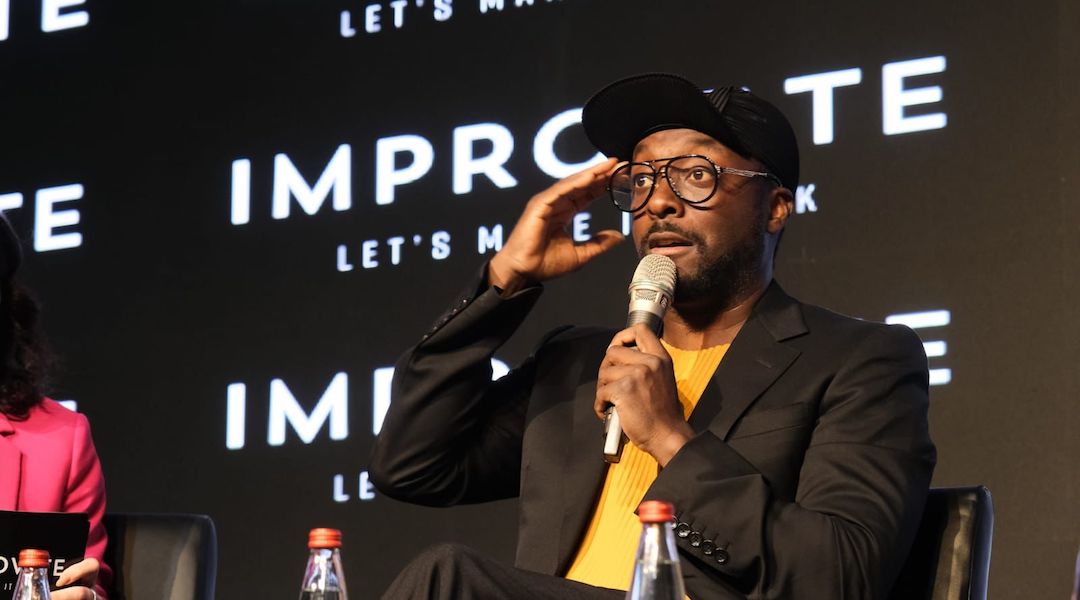(JTA) — Black Eyed Peas frontman will.i.am feels at home in Israel — so much so that he used a Yiddish word to describe the feeling he gets in the country.
While on a visit to Israel to perform with his group, will.i.am, born William James Adams, Jr., said Monday that he would not boycott the country and added that being in Israel is like being among family — or “mishpocha.”
“I always wanted to come to Israel growing up in Los Angeles, a lot of my friends are Israelis,” said will.i.am, who is not Jewish. “My grandma came here. When she visited, she would say, ‘I’m going to the holy land.’ She came with her church. It was always a place of aspiration and wonder and when I first came, I brought my grandma…I always love coming here. It’s like mishpocha.”
The rapper made his remarks at the IMPROVATE technology conference in the Orient Hotel in Jerusalem. This was not the first time the Black Eyed Peas have performed in Israel, where they put on concerts in 2006 and 2007.
Speaking at the conference, will.i.am explained how one of his childhood friends inspired him to throw some other Hebrew words into one of the band’s most popular songs, “I Gotta Feeling.” In that song, will.i.am famously shouts out “mazel tov” and another band member responds with “l’chaim.”
“I wanted to make Benjamin‘s dad proud,” the rapper said of his childhood friend. “So I said, ‘Mazel tov,’ ‘L’chaim’ and he was like, ‘Will, I always knew you are mishpocha. So to me, when I say mishpocha, I mean that dearly. This place is magical to me, for my grandma wanted to come here, and I can’t let politics get in the way of where my heart is going.”
Will.i.am also worked the word “mishpocha” into a music video for a song the Black Eyed Peas made with the Israeli pop duo Static and Ben El in 2020.
“What’s up, mishpocha?” he asks at the beginning of the music video.
JTA has documented Jewish history in real-time for over a century. Keep our journalism strong by joining us in supporting independent, award-winning reporting.






